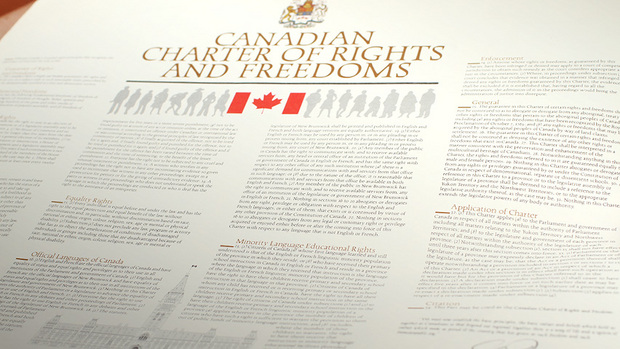The Right to Speak with a Lawyer
Pursuant to section 10 of the Canadian Charter of Rights and Freedoms, upon arrest or detention you have a right to retain and instruct counsel without delay. More specifically, section 10 of the Charter guarantees that upon being detained or arrested, that you have a right to be informed promptly of the reasons for your arrest or detention, the right to retain and instruct counsel without delay and to be informed of that right, and the right to have the validity of the detention determined by way of habeas corpus (the right to appear before the court), and to be released if the detention is not lawful.
What Does ‘Without Delay’ Mean?
The term ‘without delay’ when referring to your right to retain and instruct counsel does not translate into an absolute right to speak with a lawyer the moment after you are arrested or detained. Our courts have held that it is reasonable for the police to delay your right to speak with a lawyer for the purpose to search you for weapons, to ensure the immediate safety of the officers and others, and to preserve evidence. Also, if there is no telephone available when you are arrested or detained, this may temporarily delay your right to speak with a lawyer. However, as soon as a phone is available the police must provide you with an opportunity to speak with a lawyer. The Supreme Court of Canada in R. v. Manninen [1987] 1 S.C.R. 1233, held that the accused’s rights were infringed when the police did not give the accused an opportunity to speak with a lawyer until the accused was transported to the police station, when there was a telephone available at the location where the arrest occurred.
The police are required to give you a reasonable opportunity to retain and instruct counsel, and if you indicate you wish to speak with a lawyer the police must refrain from eliciting information from you until you have spoken with a lawyer or had a reasonable opportunity to do so. When you are provided an opportunity to retain and instruct counsel, you must make reasonably diligent efforts to contact a lawyer, or the obligation on the police to refrain from asking questions may be suspended. For example, where the lawyer you wish to speak to is away on a vacation, you must attempt to contact another lawyer. Simply put, you do not have an absolute to speak with a lawyer of your choice in circumstances where you are unable to get in contact with that lawyer within a reasonable period of time.
Speak with a Lawyer in Private
When you are afforded an opportunity to speak with a lawyer, it is important that you are given an opportunity to do so in private and not in the presence of a police officer. The reason for this is that our courts have recognized that a person might not otherwise communicate all relevant information if he or she is talking to a lawyer in the presence of a police officer.
Understand What Your Rights Are
Whether you speak with me or any other lawyer, make sure you fully understand what your rights are. The right to speak with a lawyer is not a right you can exercise on an ongoing, unlimited basis. Once you have spoken with a lawyer, the police are entitled to resume asking you questions. Although you have a right not to answer their questions or to provide them with a statement, the police are not obligated to provide you with an opportunity to speak with a lawyer again unless one of two circumstances arises. First, it becomes apparent that you did not understand the legal advice you were provided, or second, the substance of the interview has shifted to the extent that that your jeopardy has changed from the time you initially spoke with a lawyer. For example, where you spoke with a lawyer after being arrested for a particular and you are subsequently charged with a much more serious offence, your jeopardy has changed and you are entitled to speak with a lawyer again.
When you do speak with a lawyer, you can expect that the lawyer will advise you that you have an absolute right to say nothing at all to the police. You should also be advised that you are not required to assist the police in any way in their investigation. A lawyer cannot specifically direct you not to make a statement or to remain silent, rather he or she can only advise you that you have a right to say nothing at all and that they recommend you exercise that right.
The laws with respect to the right to counsel are not the same as they are in the United States. You do not have a right to have your lawyer present while you are interrogated by the police. You can advise the police that you do not wish to answer any questions without your lawyer present; however the police are not obligated to honor your request.
After You Have Consulted with a Lawyer
A lawyer should also advise you about what the police are entitled to do after you have finished speaking with the lawyer. You should be advised that although you can inform the police you do not wish to make a statement, the police are still entitled to continue to ask you questions. Often in circumstances where the police want to elicit information from you, they will continue to ask you questions despite the fact you have informed them you do not wish to make a statement.
Making a Statement
When you have been arrested or detained, it is not likely in your benefit to make a statement to the police. The police have a duty protect the public and to investigate crime, and arrest those individuals they believe are responsible for committing criminal offences. The police do not go around and arrest people for no particular reason; if you have been arrested or detained it is reasonably safe to say the police are not there to represent your best interests, they are there to investigate allegations of a crime.
Contact
If you have been charged with a criminal offence or the police would like to speak with you about a crime, contact me immediately.













